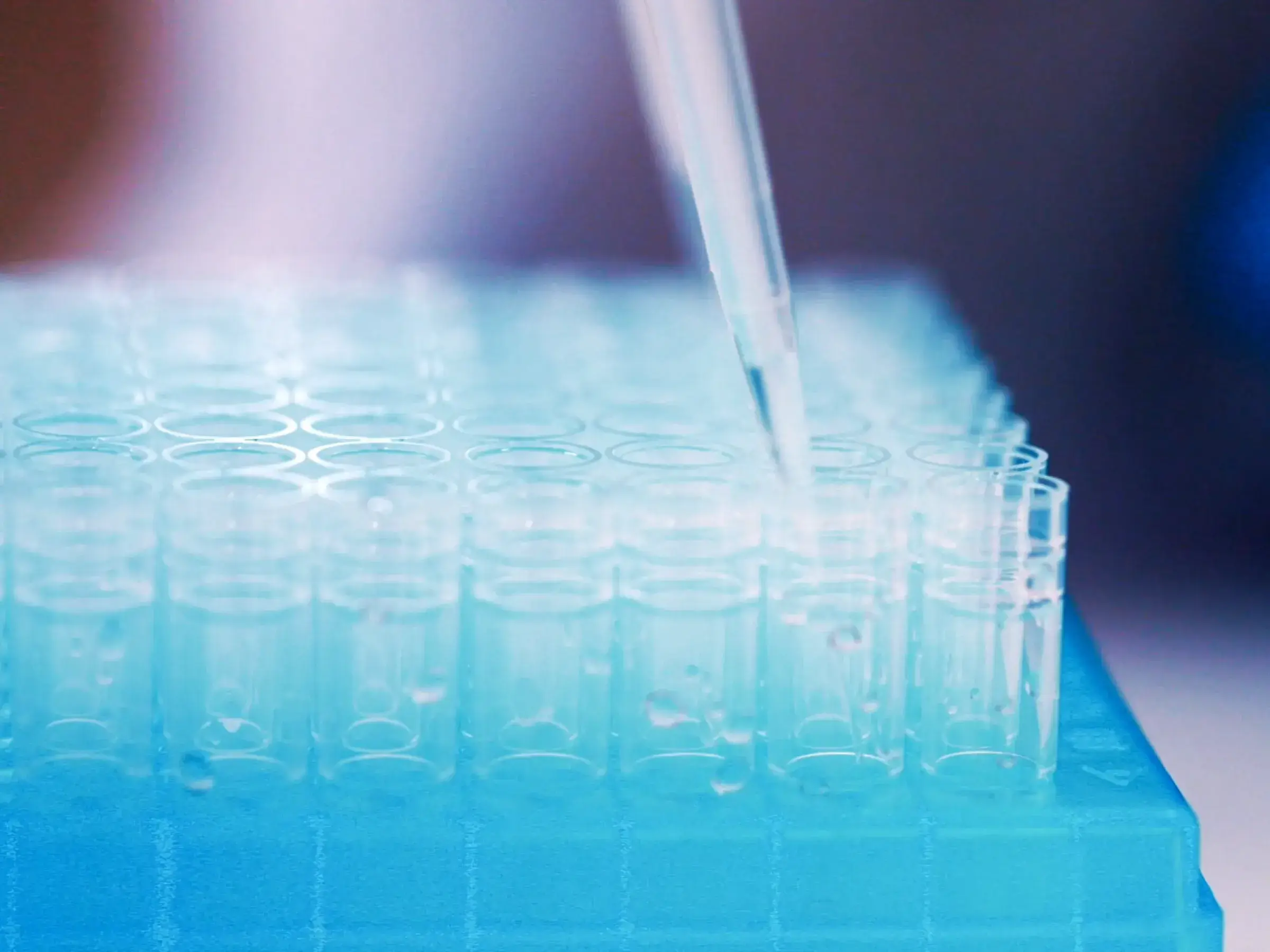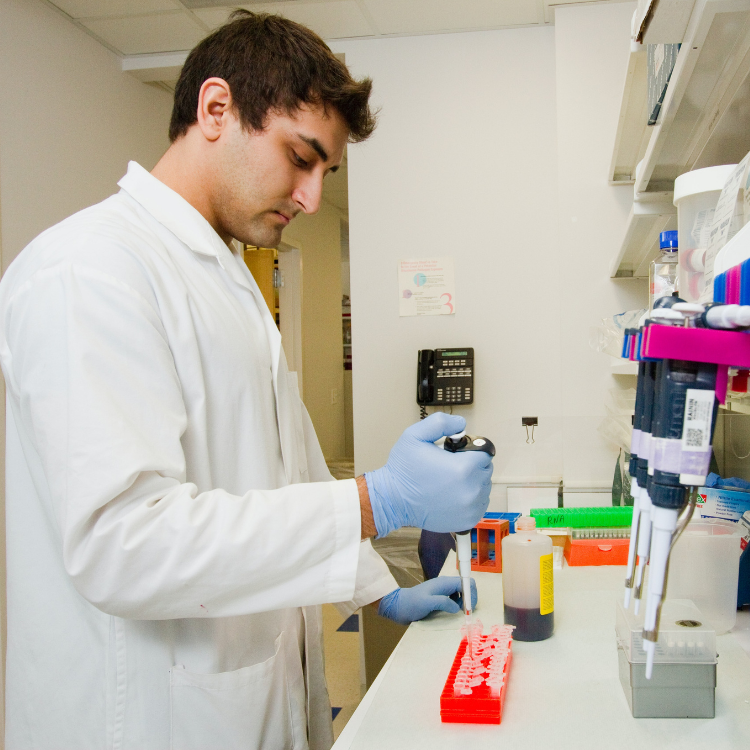IBS, Inflammatory Bowel Disease & the Microbiome
In this exploration, we delve into the fascinating connection between Irritable Bowel Syndrome (IBS), Inflammatory Bowel Disease (IBD), and the...
4 min read
 Manoj Dadlani
:
Mar 6, 2025 4:49:09 AM
Manoj Dadlani
:
Mar 6, 2025 4:49:09 AM

Microbiome-based cancer diagnostic methods use microbial DNA from saliva, feces, and blood plasma as biomarkers for cancer. These non-invasive methods are more frequently being explored in order to improve early cancer detection and diagnosis.
This article from the microbiome experts at Cmbio explores current research into the use of microbiome analyses for cancer diagnosis, the different methods that are being explored, and why these methods are so important to human health.
Microbiome-based cancer diagnostics refer to the use of microbial signatures—distinct patterns of microorganisms found in the human body—to detect and potentially identify cancer. These methods rely on analyzing changes in the microbiome, such as alterations in microbial composition or the presence of specific microbes, which are associated with certain types of cancers.
By examining microbiome data from biological samples like saliva, stool or plasma cell-free DNA (cfDNA) researchers aim to develop non-invasive tools for early cancer detection, diagnosis, and even to support with the monitoring of treatment responses.
Get Started With Immuno-Oncology Sequencing & Bioinformatics Today
The salivary microbiome and fecal microbiome are being explored as non-invasive diagnostic tools for cancer. These methods could complement existing diagnostics and improve early cancer detection.
Salivary microbiome analysis is emerging as a promising tool in cancer diagnostics, particularly for oral cancers. Key findings from recent studies include:
These findings highlight the potential of salivary microbiome analysis as a non-invasive, cost-effective method for early cancer detection and monitoring, offering a promising avenue for improving diagnostic accuracy and patient care in oncology.
Fecal microbiome analysis is emerging as a promising non-invasive method for colorectal cancer (CRC) detection. Key insights from recent studies include:
These findings underscore the potential of fecal microbiome-based diagnostics as a valuable tool in the early detection and management of colorectal cancer.
Microbiome-based diagnostic methods have the potential to become independent approaches for cancer detection. As research progresses, these methods may reduce the need for invasive procedures and improve early diagnosis and treatment outcomes.
Benefits of microbiome-based cancer diagnostics include:
For these reasons, microbiome-based diagnostics offer great promise when it comes to transforming cancer detection and management. They have the potential to make routine cancer screening more accessible and less burdensome, particularly in underserved populations. By improving early detection and providing cancer-specific insights, these methods can lead to faster interventions, better patient outcomes, and reduced diagnostic healthcare costs.
Further research is needed to understand the specific mechanisms by which microbes influence cancer cells. This knowledge could lead to improved diagnostic tools, new therapeutic targets, and better patient outcomes.
If you're looking to expand on research into the microbiome and cancer treatment or diagnostic tests, our state-of-the-art immuno-oncology sequencing and bioinformatics services can help.
We're your research and innovation partner for human, animal, and planetary health. Discover our solutions today.

Yes, microbiome analyses can be used to diagnose and monitor the development and progression of different types of cancer. Research indicates that specific microbial patterns or "signatures" can be associated with different cancer types, suggesting that microbiome analysis could improve chances of early detection and diagnosis.
Yes, microbiome studies can help diagnose squamous cell lung carcinoma. One study analyzed lung microbiota profiles and found distinct differences between adenocarcinoma and squamous cell carcinoma, which indicates that specific microbial patterns could potentially serve as biomarkers for differentiating between lung cancer subtypes.
Anti-CTLA-4 immunotherapy is a form of cancer treatment that has been found to create changes to immune responses against tumors by targeting the CTLA-4 protein on T cells. CTLA-4 (cytotoxic T-lymphocyte-associated protein 4) is a checkpoint protein that downregulates immune responses, preventing overactivation that could damage healthy tissues. In cancer, this regulation can inhibit the immune system's ability to attack tumor cells.
Anti-PD-1 immunotherapy is a form of cancer treatment that enhances the body's immune response against tumors. It involves the use of immune checkpoint inhibitors that target the programmed cell death protein 1 (PD-1) pathway. Anti-PD-1 immunotherapy and anti-PD-L1 immunotherapy are both designed to enhance the immune system's ability to recognize and attack cancer cells by targeting the PD-1/PD-L1 pathway.

In this exploration, we delve into the fascinating connection between Irritable Bowel Syndrome (IBS), Inflammatory Bowel Disease (IBD), and the...
.webp)
The human microbiome is a complex ecosystem of microorganisms residing in and on the human body, playing a pivotal role in human health and disease....

Throughout the years, microbiology has continuously pushed the limits to test for, detect, and measure the microbes found in various environments....